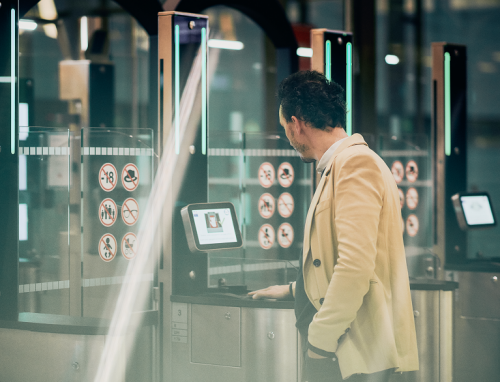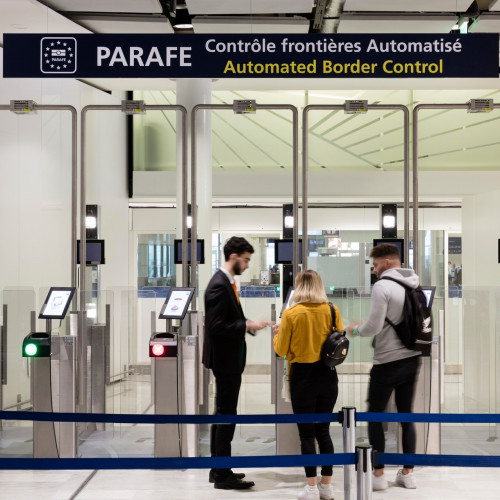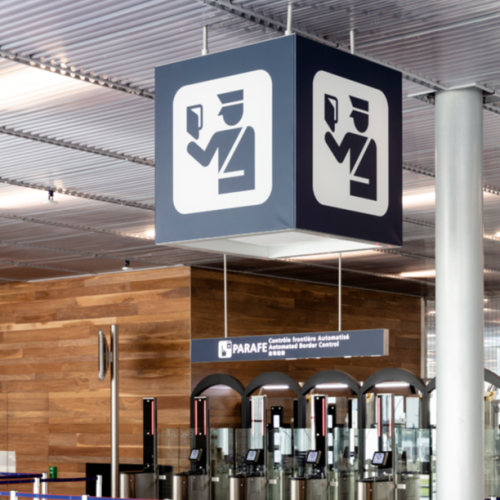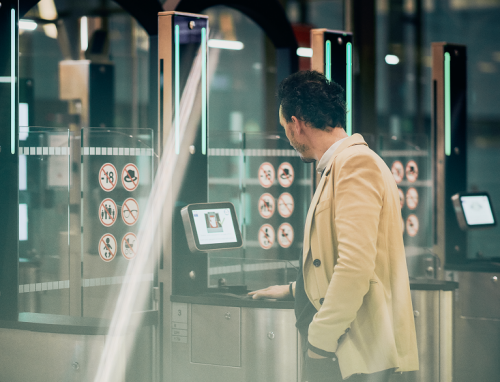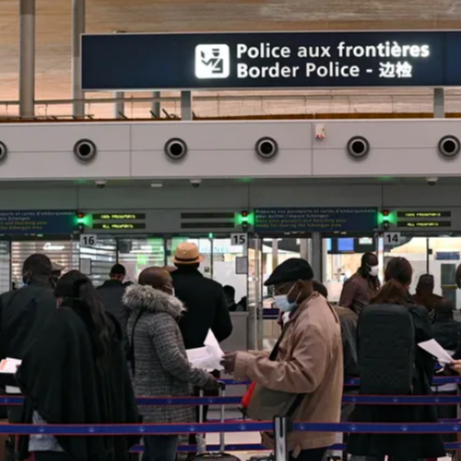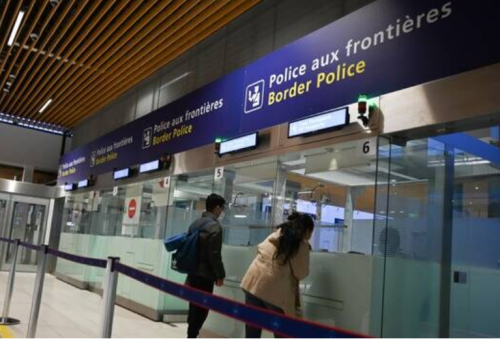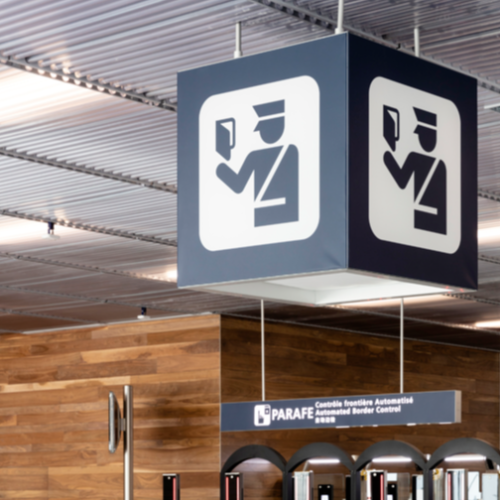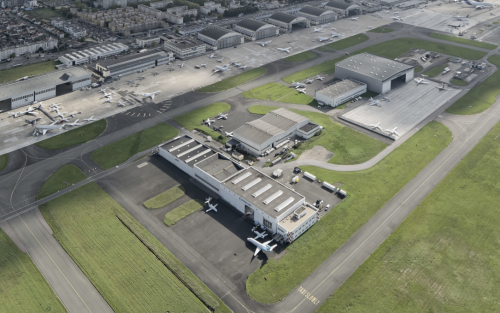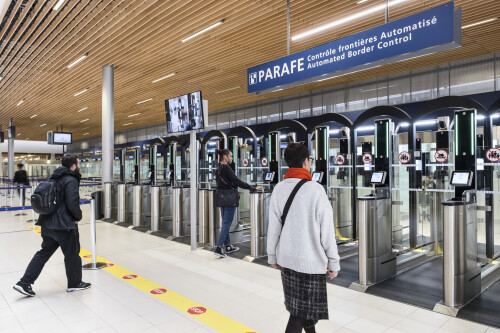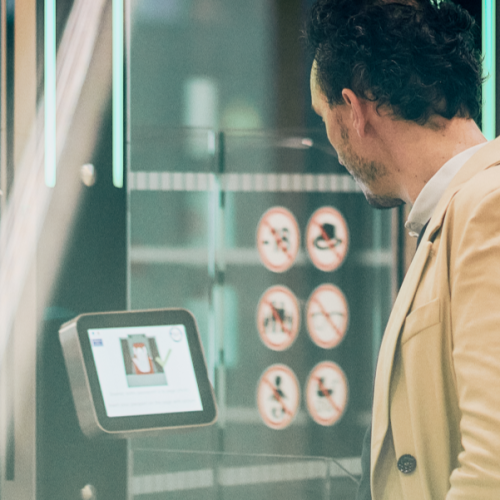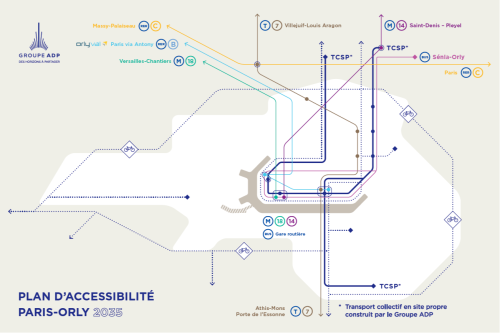Paris-Charles de Gaulle ranks among the first European airports to experiment EASA (European Union Aviation Safety Agency) recommendations. The aim is to succeed in establishing a new sanitary international standard in air travel, within the coming weeks. In addition, the airport is launching "sanitary corridors" test-flights.
Paris-Charles de Gaulle: first airport to sign up to the EASA charter
Paris-Charles de Gaulle Airport is joining the ten other aviation stakeholders to abide by EASA and ECDC (European Center for Disease Prevention and Control) guidelines. These measures, largely implemented at Charles de Gaulle Airport since early May 2020, helped the EASA and ECDC to establish a pragmatic and comprehensive list of recommendations, aiming at ensuring health and safety standards for air passengers and aircraft/airport operators ; among which you will find ensuring social distancing all along the journey, the reinforcement of cleaning and disinfection protocols, mandatory wearing of mask, practicing all hygiene recommendations, etc.
To monitor the implementation of those measures, the EASA just launched a dedicated programme. The aim is to assess real-life situations concerned by EASA recommendations and to contribute to establishing a new sanitary standard at European level, but also worldwide. The psychological dimension and the perception of those measures by the passengers will also be examined in this analysis.
To this end, Paris-Charles de Gaulle Airport is joining forces with airlines such as easyJet on Nice and Toulouse routes, Wizzair on Budapest. Groupe ADP is also collaborating with Air France to implement sanitary measure aligned with EASA recommendations, in order to offer to the clients, the best security standard.
In addition, since May 2020 28th, three "sanitary-corridor"-test-flights have been carried out between Paris and Reunion Island, where passengers must comply with a fourteen-day quarantine. Those experimentations involve the two airports, as well as airline partners - Air Austral and Air France -, and the French Civil Aviation Authority.
"Sanitary corridors" must guarantee, to the destinations served, that the passengers do not show any Covid-19 symptoms prior to their departure, nor they will be exposed to the virus during the journey, thanks to the implementation of the EASA recommendations. Passengers are screened in that regard upon arrival. Consequently, airport and airline measures are harmonized between airport of departure and arrival, and certify that sanitary standards are met at every step of the journey for a maximal protection.
Regarding French Overseas destination, the aim is to ease quarantine procedures imposed to all incoming passengers.
To monitor the implementation of those measures, the EASA just launched a dedicated programme. The aim is to assess real-life situations concerned by EASA recommendations and to contribute to establishing a new sanitary standard at European level, but also worldwide. The psychological dimension and the perception of those measures by the passengers will also be examined in this analysis.
To this end, Paris-Charles de Gaulle Airport is joining forces with airlines such as easyJet on Nice and Toulouse routes, Wizzair on Budapest. Groupe ADP is also collaborating with Air France to implement sanitary measure aligned with EASA recommendations, in order to offer to the clients, the best security standard.
In addition, since May 2020 28th, three "sanitary-corridor"-test-flights have been carried out between Paris and Reunion Island, where passengers must comply with a fourteen-day quarantine. Those experimentations involve the two airports, as well as airline partners - Air Austral and Air France -, and the French Civil Aviation Authority.
"Sanitary corridors" must guarantee, to the destinations served, that the passengers do not show any Covid-19 symptoms prior to their departure, nor they will be exposed to the virus during the journey, thanks to the implementation of the EASA recommendations. Passengers are screened in that regard upon arrival. Consequently, airport and airline measures are harmonized between airport of departure and arrival, and certify that sanitary standards are met at every step of the journey for a maximal protection.
Regarding French Overseas destination, the aim is to ease quarantine procedures imposed to all incoming passengers.
Groupe ADP, first airport group worldwide to implement EASA recommendations
Thanks to its international network, Groupe ADP is willing to play a supportive role, to help airports of the network implement EASA recommendations. To this respect, Groupe ADP is counting many pilot airports implementing EASA recommendations (Zagreb in Croatia ; Ankara Esenboğa, Izmir, Bodrum, Antalya in Turkey ; Skopje in North Macedonia ; Tbilisi in Georgia ; Riga in Latvia ; Amman in Jordan ; Sir Seewoosagur Ramgoolam in Mauritius ; Antananarivo in Madagascar ; Nuevo Pudahuel in Santiago de Chile).
The implementation of these measures will ultimately ease the restoration of connectivity in complete safety, with destination that would remain exposed to Covid-19.
Augustin de Romanet, Chairman and CEO for Groupe ADP, underlines: "Since the very beginning of this crisis, Groupe ADP was determined to be a pioneer of the implementation of new sanitary regulations, enabling to restore confidence of our travelers, tomorrow. Thanks to the collaboration with EASA, Groupe ADP and all its stakeholders involved in those test-flights, can help governmental authorities in their decisions to restart aviation activities, which are driving forces for connectivity and tourism, and indirectly to the restart of the national economies".
The implementation of these measures will ultimately ease the restoration of connectivity in complete safety, with destination that would remain exposed to Covid-19.
Augustin de Romanet, Chairman and CEO for Groupe ADP, underlines: "Since the very beginning of this crisis, Groupe ADP was determined to be a pioneer of the implementation of new sanitary regulations, enabling to restore confidence of our travelers, tomorrow. Thanks to the collaboration with EASA, Groupe ADP and all its stakeholders involved in those test-flights, can help governmental authorities in their decisions to restart aviation activities, which are driving forces for connectivity and tourism, and indirectly to the restart of the national economies".









